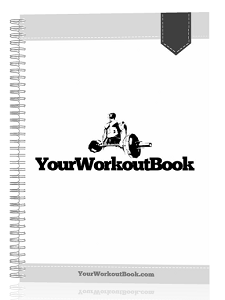High performance on the volleyball court starts in the kitchen. Here’s why you should be keeping a food journal if you want to compete at a higher level.
Whenever I start working with a new athlete the conversation always starts out with rep ranges, periodization, training volume, competition preparation and so on.
They offer up their workout log and proudly show me all the work they have been doing in the gym. The consistent attendance. And the extra work being done after practice when teammates head home.
And then I ask to see their food journal.
Crickets.
“How much protein are you getting each day?” I’ll ask.
“Uh, enough…”
“How much water are you drinking over the course of the day?”
“Lots…” they stammer.
At some point athletes get so wrapped up in their training, the gear they use, and the competition that they forget about one of the completely unavoidable fundamentals of high performance—their nutrition.
After all, if you are serious about having better workouts, about being able to recover quickly between practices, and having higher energy levels, why aren’t you journaling your nutrition?
For most athletes it’s a case of not knowing and not wanting to do the extra work.
But you can’t avoid the completely unavoidable fact that mastering the kitchen is a critical part of mastering the gym.
Here’s what happens when you start writing down your meals in a food journal:
You’ll stop screwing around.
Going meal to meal, eating whatever you feel like when you feel like it is a recipe for disaster. Our cravings are terrible judges of what is good for us. “Pretty good, I think,” isn’t good enough when it comes to how you workout, so why is it any different in the kitchen?
Nothing screams high performance badassery louder than an athlete who dominates the gym and the kitchen.
Prioritizes the right things.
It’s crazy how athletes will get super in-depth about what type of creatine they should be using, or in discussing rep ranges, or bragging about their 3-hour recovery protocol, but then can’t tell you how many grams of protein they are taking in per day.
Focusing on the small, nearly inconsequential details of our diet over the larger, big picture things is common. A food journal, when used properly, keeps you dialed in on the stuff that actually matters.
It’ll be tedious at first.
Yeah, it’s not going to be a lot of fun. If you’ve never been into self-monitoring this will be a struggle at first.
But as someone who takes their workouts seriously you are already keeping track of your performance under the bar in your workout log, so why aren’t you taking one extra little step and writing out your meals?
I get it—more “homework”, or at least the illusion of it. But again, if you are serious about performance in the gym why are you short-changing your performance in the kitchen?
It builds crucial self-awareness.
It’s humbling to realize that you don’t eat nearly as well as you though you did. Embarrassing, perhaps (especially if you are sharing it with a trainer or dietitian). It forces you to pay attention to what you are eating, something you weren’t doing previously.
This accountability and awareness is massively powerful, as evidenced by a 2008 weight loss study that found that participants who monitored their progress lost twice as much weight.
No extra gym work, no special diet—that’s the power of awareness.
Pair it with meal prep for an unstoppable diet.
By planning your meals ahead of time you make yourself even more powerful in the kitchen. When cravings take hold it can be really hard to shake ourselves loose of them.
While they will always be a fact of life, and a test of our willpower, you can combat them by soberly planning your meals ahead of time.
Take this a step further by engaging in regular meal prep to give those seemingly out-of-control cravings a stern talking-to.
You’ll get comfortable with measuring food.
If you don’t know this already, you will soon enough—we are simply awful at guess-timating the calorie content of food.
Research shows that when asked to guess on how many calories were in a series of fast food meals the caloric content fell way short of reality. Food journaling will force you to confront portion size and the content of your food. I’d recommend you get a cheap food scale and measure your food out.
There’s no sense in half-assing the process—if you’re going to journal your food do it properly.
Saying that you had 1 ¼ cups of whole grain pasta at lunch is much more specific and helps you drill down into the numbers much better (which your dietitian will appreciate as well when you work with them) than free-balling the numbers—“Uh yeah, I had, like, a bowl of pasta for lunch.”
While this is better than nothing, it still doesn’t unlock the full power of food journaling.
The Takeaway
We all struggle with nutrition in some form or another.
Whether it’s those mindless cravings that tackle you at the end of the work day, or playing ignorant and dumb with what is actually in our food and then being demoralized when the scale tells us numbers we don’t like, the struggle in the kitchen is real.
Keeping a food journal won’t fix everything in your diet, but it will give you the awareness to chart a better way forward. Knowing is half the battle, and a food journal is a massive first step in being a more aware and high performing athlete.
About the Author
Olivier Poirier-Leroy is a former national level athlete turned publisher of YourWorkoutBook, a 16-week workout log book and food  journal for athletes serious about taking their performance to the next level. He’s also pretty tall.
journal for athletes serious about taking their performance to the next level. He’s also pretty tall.
Click here to learn more about the power of logging your workouts with YourWorkoutBook.
You can also join his weekly motivational newsletter for athletes by clicking here.

Leave a Reply